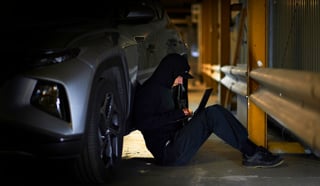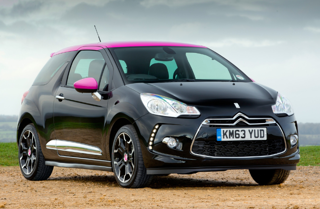Mixed feelings
Although some manufacturers have embraced eCall and even developed their own systems, others seem to be ignoring it.
One major manufacturer said that “eCall is not something we’re working on at the moment”.
But most experts believe the EC will legislate for the implementation of eCall, giving those that have started to develop systems an advantage.
The reason that many manufacturers appear less interested in the introduction of eCall is the potential costs involved in installing a ‘black box’ in every new model (but not every new vehicle; a significant point and one that is not generally realised).
Costs are speculative; to pin it down to a finite amount is not something that anyone is prepared to do. A cheaper option might be to exploit Bluetooth, although there are some limitations.
The driver could simply forget their phone or fail to pair it with the vehicle, the phone’s battery could run flat or it could be damaged by a collision.
Despite these potential issues, some manufacturers are looking at Bluetooth as a simple and low-cost solution to complying with eCall legislation.
Other areas requiring investment before eCall can be successfully implemented include mobile telephone location (E112).
It’s coming on line in the UK to improve locating phone calls, but it needs more accuracy in rural locations.
With eCall, SBD predicts extra costs to the Government for additional emergency service IT infrastructure and training of up to £3.5 million a year.
A further £4m could be needed to educate road users to avoid inappropriate calls and to maximize the benefits of eCall.
“Our best estimate of the wholelife cost, including communications, is £250 per UK vehicle,” says Stephen Longden, a specialist with SBD.
System could provide extra revenue generating opportunities
eCall has the potential to provide some useful revenue-generating avenues to explore.
One is pay-as-you-drive insurance; something that Damian James, head of the transport division at Bracknell Forest Council, believes could become more popular.
“In the longer timescale the unit could be used for a national road charging scheme and also ADAS (Advanced Driving Assistance Systems),” adds James.
“These systems use the e-Call unit to know where the vehicle is to such a degree of accuracy that they can apply braking if the system considers you are entering a corner too fast. These are very interesting and could ultimately end up meaning we don’t have drivers.
"ADAS is also linked in with the launch of Galileo (the new European satellite system) which will provide much greater accuracy of position then the current GPS.”
Although the take-up of real-time pay-as-you-drive insurance has not lived up to the hype, according to consultancy specialists SBD many insurance companies are still interested in obtaining historical data to help them refine their risk algorithms.
If eCall is a success it will make it easier and cheaper for insurance companies to collect data by sharing the hardware costs with vehicle manufacturers.
According to Stephen Longden, a specialist with SBD, the selling of vehicle movement and location data could subsidise up to 10% of the cost of the eCall box.
One company that has already seen the advantage of eCall is Incident Support Group, the UK-based accident management company, which has launched a private eCall service aimed at fleet operators, ISG Sense, priced at £12 a month per vehicle.
“We see ISG Sense as the future of vehicle incident management. By being proactive we allow an insurer to contact any non-fault parties quickly and efficiently, reducing the claim costs that might be incurred by the insurer.
“Self-insured fleets also benefit from this proactive approach.
"The speedy response also reduces costs for recovery and storage of vehicles.”
Whatever the future for eCall, it’s true to say that telematics will continue to gain popularity especially with fleet operators as they stand to gain the biggest benefits from this technology.
But, like all areas of technology, systems evolve rapidly and fleets need to keep up to date with developments.



















Login to comment
Comments
No comments have been made yet.